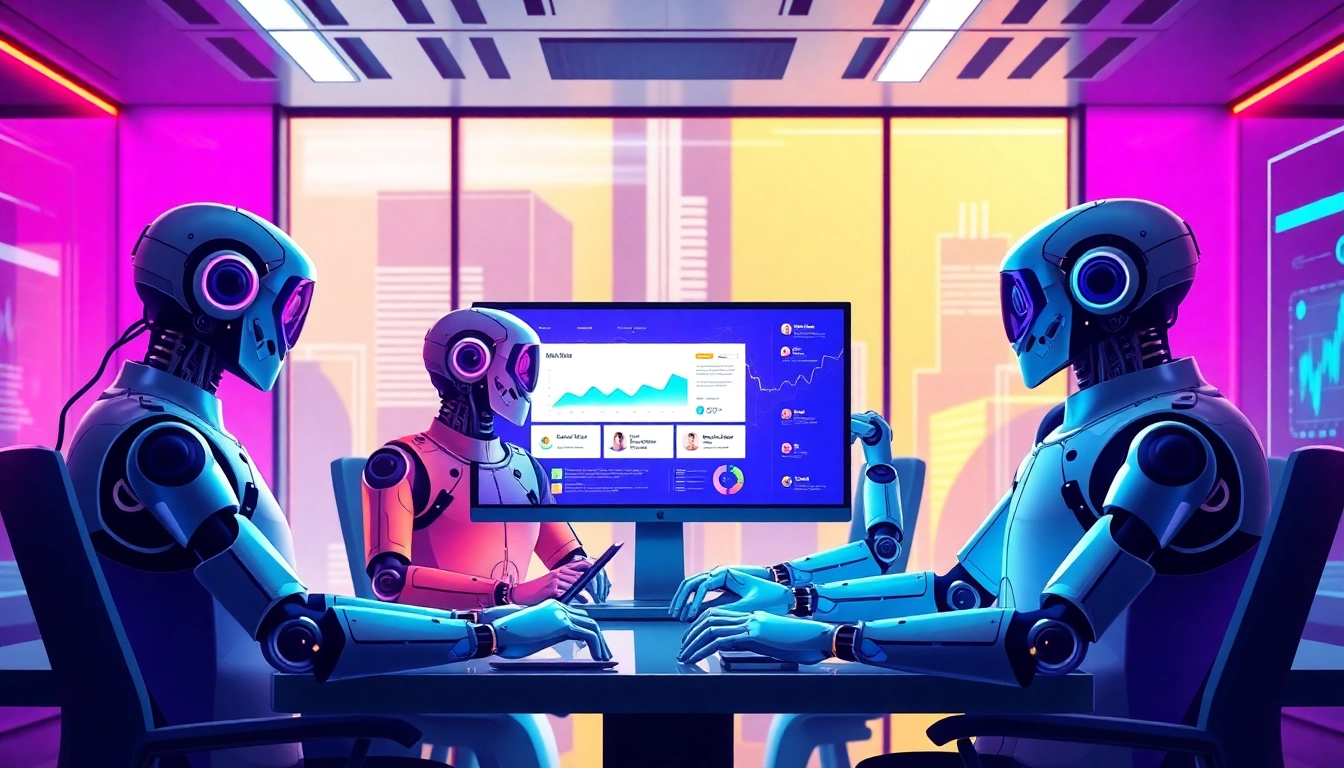Understanding AI Marketing Agents
Definition of AI Marketing Agents
Artificial Intelligence (AI) marketing agents refer to sophisticated software programs designed to carry out marketing tasks with minimal human intervention. These agents leverage various AI technologies, including machine learning algorithms, natural language processing, and data analytics, to execute tasks that range from generating personalized content to optimizing advertising campaigns. A typical example of their application is evident in enterprises that implement AI marketing agents to automate customer service responses and even provide insights on consumer behaviors, thereby enhancing customer engagement and driving sales.
How AI Marketing Agents Operate
AI marketing agents operate through a combination of data processing and learned behavior. They begin by collecting vast amounts of data from various sources such as social media interactions, website analytics, and customer feedback. This data is then analyzed to identify patterns and trends that inform marketing strategies. For instance, an AI marketing agent can analyze the effectiveness of an email campaign by comparing conversion rates and user engagement metrics, allowing marketers to refine their strategies in real-time. Importantly, advanced AI agents continually learn from their interactions, improving their decision-making and effectiveness over time.
Benefits of Using AI Marketing Agents
The integration of AI marketing agents offers numerous advantages:
- Increased Efficiency: By automating repetitive marketing tasks, companies can significantly reduce the time and labor involved in campaign management.
- Enhanced Personalization: AI agents can tailor marketing messages to individual consumer preferences, resulting in higher engagement rates.
- Data-Driven Insights: With capabilities to analyze data at scale, AI marketing agents provide organizations with insights that informed decision-making, improving overall marketing strategy.
- Cost Savings: Reducing the need for extensive human labor can lead to lower operational costs while maintaining or even improving marketing effectiveness.
Types of AI Marketing Agents
Autonomous Agents
Autonomous agents are capable of carrying out marketing strategies independently without human intervention. These agents utilize machine learning algorithms to create and manage campaigns, such as adjusting bids in a pay-per-click (PPC) advertising campaign based on real-time performance data. Their self-sufficiency is beneficial for handling large sets of data and making decisions quickly and effectively.
Assistive Agents
Unlike autonomous agents, assistive agents work collaboratively with human marketers, enhancing their capabilities rather than replacing them. For example, these agents can offer insights, analytics, and recommendations that inform human decision-making. They often assist in tasks such as content creation, email marketing, and social media management, providing valuable input that boosts productivity.
Hybrid Models
Hybrid models combine elements of both autonomous and assistive agents, allowing for a versatile approach to marketing automation. These agents can operate independently on specific tasks while also providing support to marketers in other areas. For instance, a hybrid model might autonomously optimize a digital ad campaign while providing insights to marketing teams about potential improvements in messaging or targeting.
Implementing AI Marketing Agents
Steps for Integration
Integrating AI marketing agents into an organization’s existing marketing strategy requires careful planning. Here are the steps to ensure a successful implementation:
- Define Objectives: Understand the specific marketing goals you wish to achieve by implementing AI agents.
- Evaluate Current Systems: Assess existing marketing technologies and data infrastructure to determine compatibility with proposed AI solutions.
- Choose the Right Agent: Select an AI marketing agent that aligns with your organizational needs, considering factors such as scalability, integration capabilities, and specific functions.
- Train and Monitor: Provide training to your team to ensure they are well-equipped to work with the AI agent. Monitor its performance continuously for optimization opportunities.
Choosing the Right Agent
Choosing the right AI marketing agent is pivotal to maximizing its effectiveness. Factors to consider include:
- Functionality: Identify the specific needs of your marketing team and choose an agent capable of fulfilling those needs.
- Ease of Use: Ensure the agent is user-friendly, facilitating quick adoption by team members.
- Integration Compatibility: The agent should seamlessly integrate with existing marketing tools and systems.
- Cost-Effectiveness: Assess whether the benefits of the agent justify its cost.
Measuring Success
To evaluate the success of AI marketing agents, it is essential to establish key performance indicators (KPIs). Some effective KPIs may include:
- Conversion rates
- Customer engagement levels
- Return on investment (ROI)
- Cost per lead
Regularly tracking these metrics will allow businesses to adjust strategies and optimize the performance of their AI marketing agents.
Challenges and Considerations
Data Privacy Concerns
With the increasing use of AI in marketing comes the responsibility of properly managing data privacy. Organizations must ensure compliance with data protection regulations such as GDPR and CCPA. Employing robust security measures and clearly communicating data usage policies to customers can alleviate privacy concerns and build trust.
Managing AI Expectations
While AI marketing agents provide numerous benefits, managing expectations is critical. Businesses should understand that these agents are tools designed to assist rather than replace human efforts. Therefore, it is essential to maintain realistic expectations regarding their capabilities and the potential for automated solutions.
Cost vs. Performance
As organizations contemplate implementing AI agents, they must weigh the costs against potential performance gains. It is crucial to conduct a thorough cost-benefit analysis to ensure that the expected ROI justifies the investment in AI technology. Organizations should also keep in mind that while initial costs may be high, the long-term efficiencies gained could result in substantial savings.
The Future of AI Marketing Agents
Upcoming Innovations
The field of AI marketing agents is rapidly evolving, with numerous innovations on the horizon. These may include advancements in natural language processing, which could lead to even more sophisticated customer interactions, and enhanced machine learning algorithms that improve the predictive capabilities of AI agents.
Industry Trends
Remaining aware of industry trends is vital for organizations looking to leverage AI marketing. As the adoption of AI technology increases, trends such as hyper-personalization, real-time analytics, and predictive marketing are becoming prevalent. Marketers must adapt to these trends to remain competitive.
Predicted Market Growth
As per reports from industry analysts, the market for AI in marketing is predicted to grow exponentially. In 2021, the market was valued at approximately $15.84 billion and is projected to surpass $107.5 billion by 2028. This significant growth showcases the increasing reliance on AI-driven solutions within the marketing sector, highlighting its essential role in future marketing strategies.



